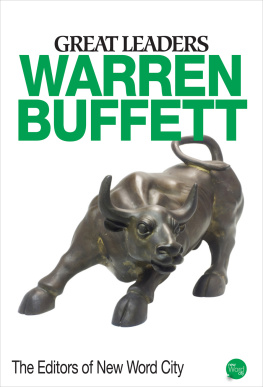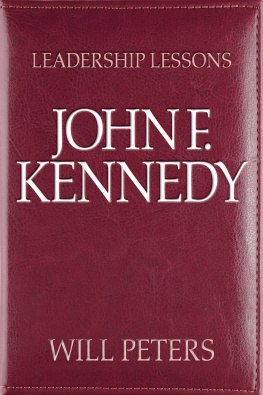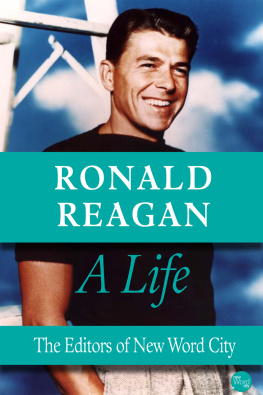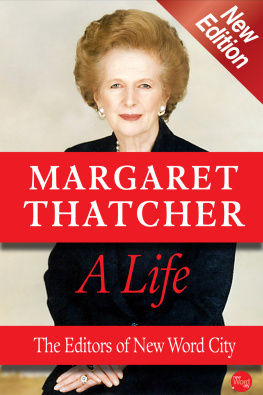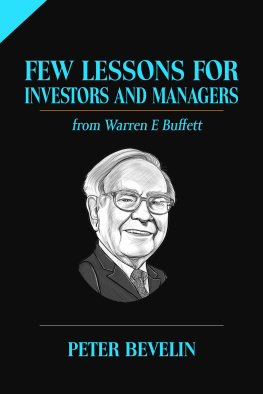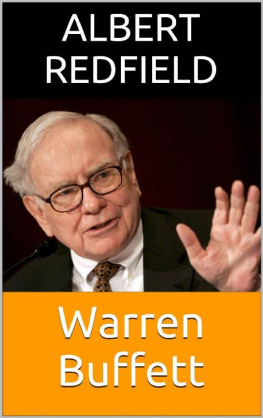Every investor knows and reveres Warren Buffett - the Oracle of Omaha, the rumpled, plain-spoken financial genius whose homespun precepts have made him a multibillionaire. At a time when high-tech stocks popped like soap bubbles, when complex financial instruments nearly destroyed the economy, Buffetts success, self-deprecating wit, honesty, and humble ways have made him a person we can all learn from and emulate.
Of course, all this comes with footnotes. Buffett is a complex, hard-driven striver. His folksiness, populist politics, and generous philanthropy hide a hard-eyed focus on the bottom line. He can be self-absorbed and even callous, and his personal life raises censorious eyebrows. In his investing, he says he is governed by three easy rules: One, never lose money; two, never forget rule number one; and three, never go into debt. Yet, he has repeatedly broken all those rules and more in a career that has included learning (and often unlearning) dozens of tough financial lessons.
Emotionally abused as a child, Buffett has been physically timid all his life. He dreads confrontations. He has repeatedly avoided firing underperforming managers - only to be prodded to ruthlessness when their losses inevitably mounted. His public image has waxed and waned, from expert to has-been to elder statesman, and he couldnt have cared less. When he topped Forbes magazines list of the worlds richest people, he was still living in the ordinary Omaha house he had bought sixty years earlier. But the Buffett name has become magical: At last count, it figured in the titles of forty-seven books purporting to draw on his wisdom.
This brief book will follow Buffetts journey, from its beginning in the hardscrabble years of the Great Depression to the pinnacle of investing. And along the way, well assess his principles and precepts to see which ones can be applied by investors who arent Warren Buffett.
An Early Focus on Money
Buffetts father Howard, a grocers son, became a stockbroker in the Roaring Twenties. After the Black Tuesday crash of October 1929, Howard went four months without making a single sale. His wife Leila would go on his calls for moral support, patiently waiting outside the homes of potential clients until her husband emerged to be consoled yet again. Their first child Warren was born the following summer. A year later and with another baby in the cradle, Howard lost his job and his savings when his employer went belly up.
With little possibility of work and against all odds, Howard and two partners set up their own brokerage firm. They found customers and prospered by focusing on stocks and bonds in solid, conservative businesses. Thus, Warrens boyhood was never as bleak as for many in the prairie city of Omaha in the 1930s. But the hard times, dust storms, heat waves, and plagues of locusts left their mark. Warren grew up a cautious child with a steady, focused gaze. He kept his knees bent while learning to walk. And from his preschool days, he was keenly interested in numbers and money. When he was just seven years old, he asked Santa to bring him a particular book, William Townsends Bond Salesmanship. He read it, too.
Buffetts mother impressed her neighbors as a model of duty, sacrifice, and social virtues. At home, however, she lacked warmth, complained of frequent headaches, and subjected Warren and his sister Doris to tirades of rage. Buffett reacted by seeking shelter at his friends homes and emotional support from their mothers. He also retreated to numbers and books - listing the license plate of every car that passed his house, for instance, or obsessively collecting coins, stamps, and bottle caps. A born skeptic, he always sought evidence to support any theory. In church, he passed the time by calculating the life spans of composers of hymns from dates of their births and deaths listed in the hymnal. His hypothesis was that their faith should give them an advantage over nonbelievers. But when it turned out that their lives were no longer than average, he began to doubt. In later life, he would call himself an agnostic.
Precocious and competitive, Buffett skipped a grade in school and excelled at spelling bees and blackboard arithmetic contests. His favorite book was the World Almanac, and he memorized the population of every major city in the United States.
He was six years old when he started his business career, selling packs of chewing gum for five cents each. That gave him a profit of two cents over what he paid his grandfather the grocer for his supplies. But when a customer wanted to get a single stick of gum for a penny, Warren refused. I had my principles, he said years later. And besides, he figured it would be too much trouble to find buyers for the other four sticks. He went on to peddle Coca-Cola door-to-door, along with copies of The Saturday Evening Post and Liberty magazine. At the age of ten, he got a job selling peanuts and popcorn at University of Omaha football games.
After that, Buffetts father took him to New York, where he visited the New York Stock Exchange. He spoke briefly with the legendary investment banker Sidney Weinberg and had an epiphany when he and Howard were taken to lunch at the members dining room at the stock exchange. Their host ordered a customized cigar, picking leaves from a tray of assorted tobacco carried by a waiter, who then rolled the cigar. I thought this is it. It doesnt get any better than this, Buffett told his chosen biographer, Alice Schroeder. He vowed to become a millionaire by the time he was thirty-five.
The next year, having saved $120 from his enterprises, Buffett bought three shares of Cities Service Preferred - one of the conventional stocks his father favored - for $35 a share. His sister Doris was his partner in the deal. When the stock sank from its earlier high of $38.25 to $27 a share, she was disappointed. When it recovered to $40, Warren sold it for a $5 profit. But when the stock roared to $202 a share, he brooded over having been too quick to sell. He promised never to make that mistake again and also not to invest someone elses money unless he was sure he would earn a respectable return.
In later years, Warren Buffett usually managed to follow both those lessons, but he sometimes had to maneuver adroitly to make investments come out on top.
Capital Magic
Buffetts father - a conservative Republican and no fan of President Franklin D. Roosevelt - ran for Congress in 1942 and won. The family moved to Washington, D.C., where Buffett continued his voracious reading, focusing now on biographies of famous businessmen. He kept on making money by delivering newspapers and selling used golf balls retrieved from water hazards. The weekly income from his paper route alone was $175, at the time a good wage for a working man. At thirteen, Buffett filed his first income-tax return. He claimed a $35 deduction for the use of his bike and his watch on his paper route. (He still does his own tax returns.)
The next year, Buffett discovered the magic of compounded capital: an investment that churns out returns that can be reinvested over and over. He and a mechanically talented friend bought an old pinball machine for $25. After the friend refurbished it, Buffett talked a neighborhood barber into installing it in his shop in exchange for half the proceeds. The machine paid for itself in its first week of service, and the boys soon had six more installed in other barber shops. From that time on, Buffett saw each dollar in his pocket as not one but ten - what it would become if he let it grow. That perspective permanently affected his attitude toward spending money. With few exceptions, he has been careful all his life. By the time he finished high school, Buffetts savings equaled $5,000 - more than ten times that much in todays dollars.
Next page
